China’s Four Ocracies
Recent events shows that even though China's leadership has evolved and political knowledge among chinese masses has grown, the path to power in China is still dominated by revolutionary political divisions.
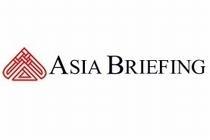 Courtesy: Asia Briefing
Courtesy: Asia Briefing
Recent events shows that even though China's leadership has evolved and political knowledge among chinese masses has grown, the path to power in China is still dominated by revolutionary political divisions.
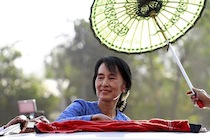 Courtesy: Wikimedia Commons/Htoo Tay Zar
Courtesy: Wikimedia Commons/Htoo Tay Zar
The West is quick to claim that their sanctions against Myanmar have forced the government to implement political and economic reforms in the country. However, such bans do not usually achieve their stated purpose of forcing regimes to change their behavior.
 Courtesy: Flickr/freeedomania
Courtesy: Flickr/freeedomania
By forcing regime change in Libya, and attempting the same in Syria, and by promiscuously arming disparate groups of Wahabbis and Salafists to achieve this aim, NATO is creating more room for instability in the region. What Syria needs is engagement, not isolation; it needs dialogue and not the arming of rebels.
The scope for any process on nuclear talks with Iran to founder on distrust, misunderstanding and political in-fighting in both Tehran and Washington remains formidable. Equally disturbing are the wider political realities. Can the upcoming talks in Istanbul launch a process that can, over time, lead to agreement?
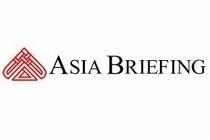 Courtesy: Asia Briefing
Courtesy: Asia Briefing
China’s Outbound Direct Investment(ODI) has reached commercially and geo-economically significant levels and begun to challenge international investments by other countries. Local provincial companies of China are among the fastest growing area in outward investment.
Given the immediacy of rising tensions around Iran’s nuclear programme, what can India and the U.S. do to resolve the issue? Gateway House’s Manjeet Kripalani talks to Ambassador Frank Wisner about the possibilities of a strike against Iran and its effects on the India-U.S. relationship.
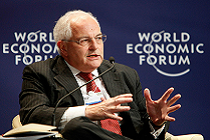 Courtesy: World Economic Forum/Flickr
Courtesy: World Economic Forum/Flickr
The emerging BRICS economies agree that the West should hold less sway in the global economy. But their leaders, despite regular summits, have failed to articulate a coherent vision because of divergent interests, says journalist Martin Wolf.
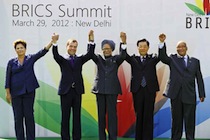 Courtesy: Saurabh Das/AP Photo
Courtesy: Saurabh Das/AP Photo
The 4th BRICS Summit in New Delhi has brought a new dimension to emerging markets. The author explains why the summit was perhaps the most significant of the BRICS meetings so far – and one that should have the developed world really worried about their eroding position at the top of the global heap.
What happens to Mumbai’s expanding slums? Why is India’s growth 15 years behind China? Gateway House’s Bob Dowling blogs after joining a discussion of urban planners and slum advocates in Mumbai on one day and a high-level International
Alisha Pinto interviewed Renu Modi, an expert on Indo-Africa relations, on South Africa and its role in the BRICS. She also discusses its ties with China, its climate change position, and foreign investments from BRIC countries.